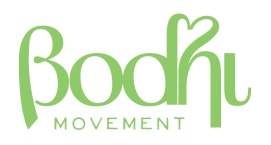We’re all busy. We juggle our jobs, social lives, exercise and work. We have tools at our disposal that are meant to make things less complicated. But rarely, do we take time away to sit down and relax, which can be really beneficial. Taking just a few minutes each day to practice mindfulness is all you need. Here are five tips on how to find time to empty your mind and destress:
Mindful observation: this is designed to connect you with nature and your surrounds, which can be easily missed if you’re always rushing around. Pick a natural organism in your surroundings; this could be a tree, a cloud, or even just a house plant if you’re in doors. Softly focus on it and observe it as though you’ve never seen it before. Explore the small details of it and really appreciate its presence – allow yourself to be fully immersed in it for anything from one minute to five minutes.
One minute breathing: this can be practiced any time, any place, anywhere. You could even do it while you’re stuck in a traffic jam on the way to work! All you have to do is focus on your breath for one minute. Start by slowly breathing in and out for one minute. Lengthen each breath for a count of up to around five seconds, making the exhale slightly longer to aid relaxation. It is natural for the mind to wander; if it does, bring your thoughts back to your breath.
Touch Points: this is another exercise to help you slow down the pace of life and fully appreciate just being. Think of something you do on a daily basis. It could be turning the kettle on or brushing your teeth. As you carry out the task, stop thinking about anything else and allow yourself to be fully immersed in the act you’re doing. Take time to appreciate the hands that let you do it, physically, and your brain that lets you carry out the task.
Mindful Listening: similar to the touch points exercise, this is designed to open your years in a non-judgemental way. Select a new piece of music from your collection; it can be something you’ve never heard before. Put it on, close your eyes and focus on the journey of sound for the duration of the song – don’t think about the artist or genre. Think about the intricacies of the song and each individual instrument playing for the duration of the track.
Mindfully experiencing your regular routine: in a similar way to the touch points exercise, pay regular attention to a part of your routine that you find yourself ‘just doing’ without paying any attention to. It could be hoovering or another mundane house chore that you don’t really enjoy. As you’re carrying it out, pay special attention to every detail of the activity. Feel and become the motion of sweeping the floor or washing the dishes. Observe the actions you’re taking and the effect they have – don’t just labour away, thinking about the end goal. Be aware of every step and enjoy the process.
Mindful observation: this is designed to connect you with nature and your surrounds, which can be easily missed if you’re always rushing around. Pick a natural organism in your surroundings; this could be a tree, a cloud, or even just a house plant if you’re in doors. Softly focus on it and observe it as though you’ve never seen it before. Explore the small details of it and really appreciate its presence – allow yourself to be fully immersed in it for anything from one minute to five minutes.
One minute breathing: this can be practiced any time, any place, anywhere. You could even do it while you’re stuck in a traffic jam on the way to work! All you have to do is focus on your breath for one minute. Start by slowly breathing in and out for one minute. Lengthen each breath for a count of up to around five seconds, making the exhale slightly longer to aid relaxation. It is natural for the mind to wander; if it does, bring your thoughts back to your breath.
Touch Points: this is another exercise to help you slow down the pace of life and fully appreciate just being. Think of something you do on a daily basis. It could be turning the kettle on or brushing your teeth. As you carry out the task, stop thinking about anything else and allow yourself to be fully immersed in the act you’re doing. Take time to appreciate the hands that let you do it, physically, and your brain that lets you carry out the task.
Mindful Listening: similar to the touch points exercise, this is designed to open your years in a non-judgemental way. Select a new piece of music from your collection; it can be something you’ve never heard before. Put it on, close your eyes and focus on the journey of sound for the duration of the song – don’t think about the artist or genre. Think about the intricacies of the song and each individual instrument playing for the duration of the track.
Mindfully experiencing your regular routine: in a similar way to the touch points exercise, pay regular attention to a part of your routine that you find yourself ‘just doing’ without paying any attention to. It could be hoovering or another mundane house chore that you don’t really enjoy. As you’re carrying it out, pay special attention to every detail of the activity. Feel and become the motion of sweeping the floor or washing the dishes. Observe the actions you’re taking and the effect they have – don’t just labour away, thinking about the end goal. Be aware of every step and enjoy the process.


 RSS Feed
RSS Feed
